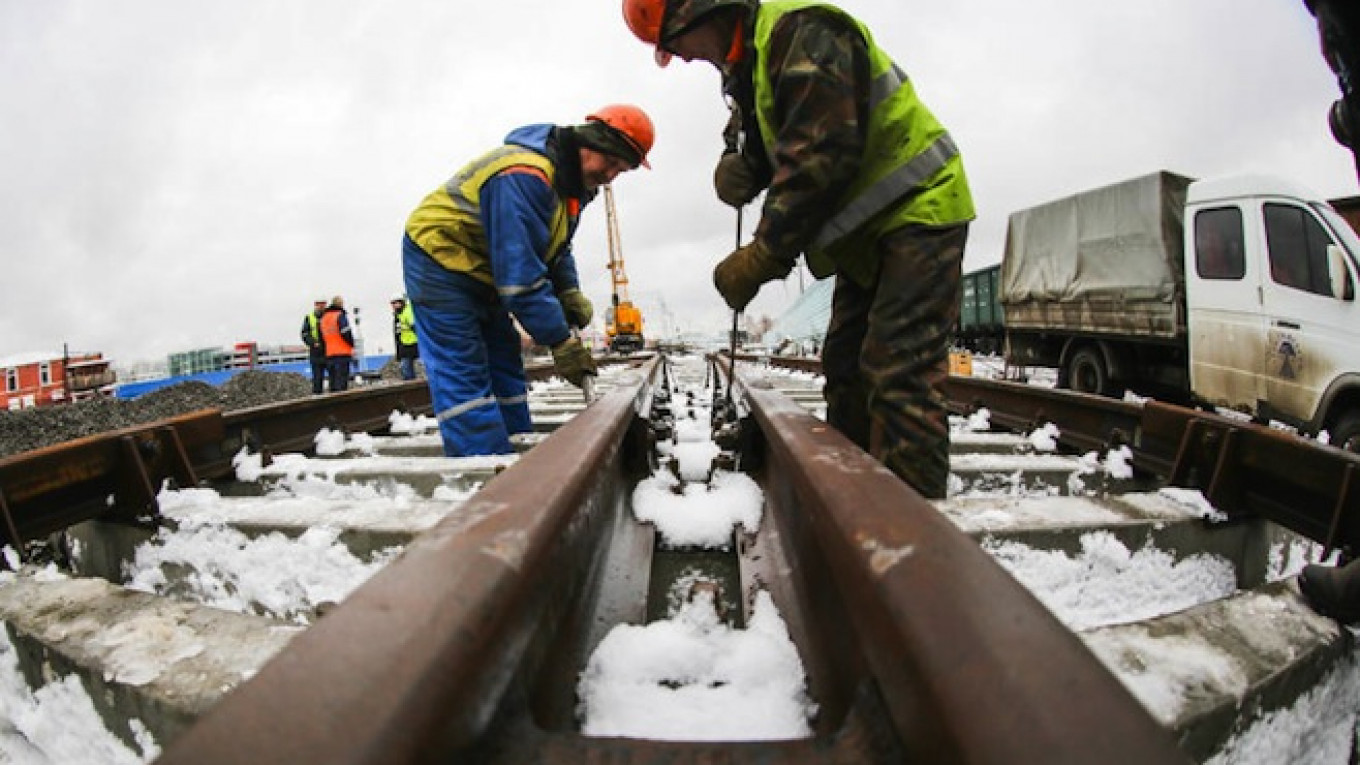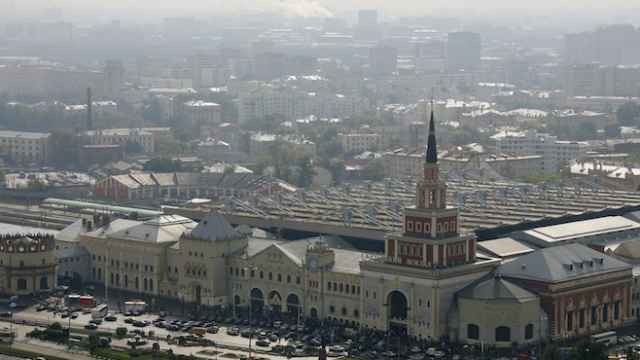The head of Russia's Academy of Sciences said he has submitted to President Vladimir Putin a proposal for building a high-speed railway that would cut across most of Siberia and all the way to the Bering Strait, the strip of water that divides Russia from Alaska.
The "very large-scale and expensive" project would help the economic development of Russia's vast and resource-rich eastern regions, the president of the Russian Academy of Sciences (RAN), Vladimir Fortov, said in an interview with the government's official Rossiiskaya Gazeta daily published Monday.
He gave no further indication of the project's estimated costs, funding or other details, saying only that the proposal was part of the academy's attempts to present economic development ideas sought by the government, according to the interview.
Russian Railways, the state-owned rail monopoly, is already working to expand a high-speed network that aims eventually to span the distance from Beijing to Europe along the route of the existing Trans Siberian Railway, but the project is struggling to raise the billions necessary for its construction.
Russia built its famed Trans Siberian Railway — a network of rail lines from Moscow to the Sea of Japan in the Far East — during czarist times. At more than 9,000 kilometers long, the railway is the longest in the world.
The Soviet government carried out its own project for building a railway across the region, ordering the construction of the Baikal-Amur Mainline (BAM) as an alternative route running parallel to the eastern section of the Trans Siberian Railway.
The BAM construction was praised during the Soviet times as the labor of enthusiastic young builders, but early stages of the construction had been done by inmates of gulag prison camps, and later phases relied on convicted criminals, laying rail tracks over permafrost.
At an estimated cost of 17.7 billion rubles, BAM became the largest development project of the Soviet Union, according to figures cited by Kommersant business daily.
A Message from The Moscow Times:
Dear readers,
We are facing unprecedented challenges. Russia's Prosecutor General's Office has designated The Moscow Times as an "undesirable" organization, criminalizing our work and putting our staff at risk of prosecution. This follows our earlier unjust labeling as a "foreign agent."
These actions are direct attempts to silence independent journalism in Russia. The authorities claim our work "discredits the decisions of the Russian leadership." We see things differently: we strive to provide accurate, unbiased reporting on Russia.
We, the journalists of The Moscow Times, refuse to be silenced. But to continue our work, we need your help.
Your support, no matter how small, makes a world of difference. If you can, please support us monthly starting from just $2. It's quick to set up, and every contribution makes a significant impact.
By supporting The Moscow Times, you're defending open, independent journalism in the face of repression. Thank you for standing with us.
Remind me later.






